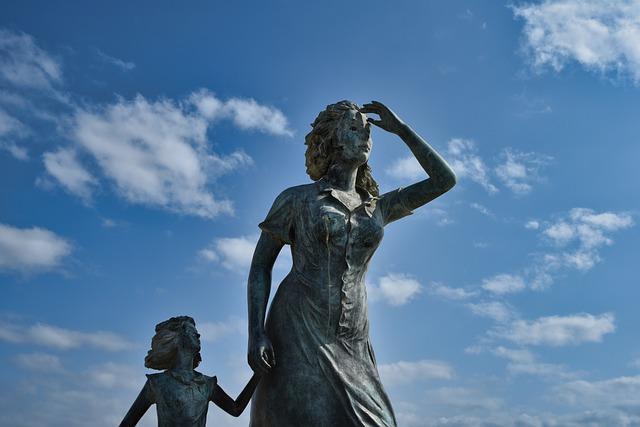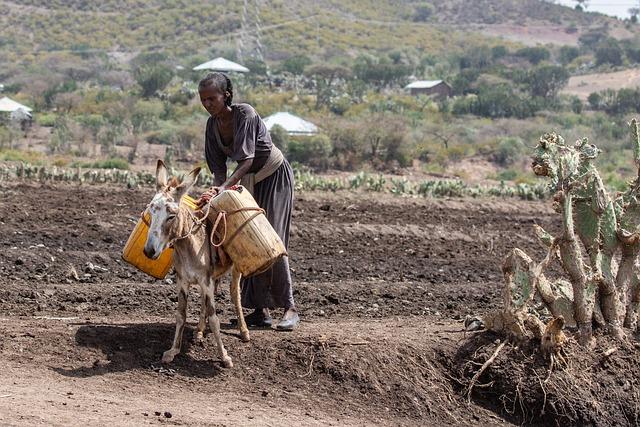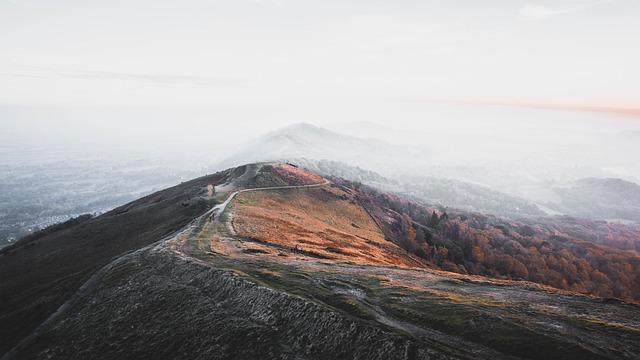Source link : https://photovideomag.com/photography-tips/mastering-the-art-of-street-photography-essential-tips-and-tricks/
In a world filled with fleeting moments and hidden beauty, street photography serves as a powerful tool for capturing the essence of urban life. Whether you’re a seasoned photographer or a novice looking to explore this dynamic art form, mastering the art of street photography can be a rewarding and challenging journey. In this article, we’ll explore essential tips and tricks to help you navigate the bustling streets and capture authentic moments that tell a compelling story.
Mastering Composition Techniques for Dynamic Street Photos
When it comes to capturing dynamic street photos, mastering composition techniques is key. Whether you’re a beginner or an experienced photographer, understanding how to frame your shots can take your street photography to the next level. In this post, we’ll explore essential tips and tricks that will help you elevate your street photography game.
One of the most important composition techniques in street photography is the rule of thirds. By dividing your frame into nine equal sections with two horizontal and two vertical lines, you can create visually appealing and balanced compositions. Placing your main subject off-center can add interest and depth to your photos.
Leading lines are another powerful composition technique that can help guide the viewer’s eye through your photo. Look for natural lines in the environment, such as roads, walls, or buildings, that can lead towards your main subject. This can create a sense of movement and flow in your street photos.
To add a sense of scale and context to your street photos, try incorporating layers into your compositions. By including multiple elements in the foreground, middle ground, and background of your photos, you can create a sense of depth and dimension. This can make your street photos more dynamic and visually engaging.
Experimenting with different perspectives can also help you create more dynamic street photos. Try shooting from unusual angles, such as low to the ground or high above the street, to add a unique and interesting perspective to your photos. Don’t be afraid to get creative and think outside the box when it comes to composition in street photography.
Understanding Lighting and Shadows for Impactful Images
When it comes to mastering the art of street photography, one of the essential elements to pay attention to is lighting and shadows. Understanding how light interacts with your subject can make a significant impact on the overall quality of your images.
Lighting can help create depth, drama, and emotion in your photographs. Experimenting with different types of lighting, such as natural light, artificial light, and ambient light, can help you achieve various effects and moods in your street photography.
Shadows can also play a crucial role in your images. They can add texture, dimension, and visual interest to your photos. By paying attention to how shadows fall on your subject, you can create compelling compositions that draw the viewer’s eye.
When shooting in the streets, it’s essential to be aware of the direction and quality of light. Consider the time of day and the position of the sun to determine the best lighting conditions for your photos. Early morning and late afternoon are typically the best times for capturing beautiful, soft light that can enhance your images.
Embracing lighting and shadows in your street photography can take your images to the next level. By mastering the art of using light to your advantage, you can create impactful and visually striking photographs that tell a story and evoke emotions in the viewer.
Finding the Right Equipment and Gear for Street Photography
When it comes to mastering the art of street photography, having the right equipment and gear is essential. Without the proper tools, capturing those candid moments and unique perspectives can be a challenge. Here are some tips and tricks for finding the perfect gear to elevate your street photography game.
Camera: A lightweight and compact camera is ideal for street photography, as it allows you to move around easily and discreetly. Consider using a mirrorless camera or a compact DSLR with a prime lens for sharp and high-quality images.
Lens: A prime lens with a focal length between 35mm and 50mm is popular among street photographers for its versatility and ability to capture scenes as they appear to the human eye. This type of lens is perfect for capturing portraits, landscapes, and cityscapes with clarity and detail.
Accessories: Investing in a good camera bag or backpack is crucial for keeping your equipment safe and organized while on the go. Consider purchasing a sturdy tripod for long exposure shots or a remote shutter release for capturing candid moments without drawing attention to yourself.
Essential Gear for Street Photography
Prime lens (35mm-50mm)
Camera bag or backpack
Tripod
Remote shutter release
Settings: Set your camera to aperture priority mode (A or Av) to have control over the depth of field and focus on your subject while letting the camera adjust the shutter speed for optimal exposure. Keep your ISO low to minimize noise in your images, especially in low-light situations.
Practice: The best way to improve your street photography skills is to get out there and practice. Experiment with different angles, compositions, and lighting conditions to develop your unique style and vision. Don’t be afraid to step out of your comfort zone and try new techniques to push your creativity to new heights.
Developing Your Style and Vision as a Street Photographer
Mastering the art of street photography requires more than just technical skills – it also involves developing a unique style and vision that sets you apart from the crowd. Here are some essential tips and tricks to help you cultivate your own creative voice in the bustling world of street photography.
1. Study the Masters
One of the best ways to refine your style as a street photographer is to study the work of the masters. Take the time to analyze the composition, lighting, and subject matter of iconic street photographs. By immersing yourself in the work of great photographers, you can gain valuable insights into what makes a compelling street photograph.
2. Experiment with Different Perspectives
Don’t be afraid to experiment with different perspectives and angles when capturing street scenes. Try shooting from ground level, above eye level, or even from behind objects to add a unique twist to your photos. Mixing up your perspective can help you discover new ways of seeing the world around you.
3. Find Your Unique Voice
While it’s important to be inspired by others, it’s equally crucial to find your own unique voice as a street photographer. Think about what themes and subjects resonate with you personally and incorporate them into your work. Whether it’s capturing candid portraits or abstract urban landscapes, finding your niche will help you stand out in a crowded field.
4. Embrace the Unexpected
Some of the most memorable street photographs are those that capture unexpected moments or elements in everyday life. Keep an open mind and be prepared to adapt to sudden changes in your environment. Embracing the unexpected can lead to serendipitous encounters and spontaneous shots that truly showcase your artistic vision.
5. Practice, Practice, Practice
Like any other art form, mastering street photography takes time and dedication. Make a habit of going out with your camera regularly, even if it’s just for a short walk around your neighborhood. The more you practice, the more refined your style and vision will become. Remember, the key to success in street photography is persistence and a willingness to push your creative boundaries.
Navigating Ethics and Legal Considerations in Street Photography
When it comes to street photography, capturing authentic moments in public spaces can be a rewarding experience. However, it’s essential to navigate the ethical and legal considerations associated with this art form.
One crucial aspect to consider is obtaining consent from your subjects. While it may not always be possible to ask for permission before taking a photo, it’s important to be mindful of people’s privacy and rights. Always respect individuals’ boundaries and be aware of cultural sensitivities.
Another important consideration is understanding the laws surrounding street photography in your location. Different countries and cities have varying regulations on photographing people in public spaces. Familiarize yourself with the rules and regulations to ensure you stay within legal boundaries.
When photographing children or vulnerable individuals, exercise extra caution and sensitivity. Avoid capturing images that could potentially harm or exploit your subjects. It’s crucial to prioritize the well-being and dignity of those you photograph.
Overall, mastering the art of street photography involves not only honing your technical skills but also becoming a responsible and ethical photographer. By navigating the complex terrain of ethics and legal considerations, you can create compelling and respectful images that truly capture the essence of street life.
Building Confidence and Overcoming Fear of Shooting in Public
When it comes to street photography, one of the biggest hurdles for many photographers is the fear of shooting in public. The thought of capturing candid moments in bustling streets can be intimidating, but with the right approach, you can build confidence and overcome this fear.
One essential tip for mastering the art of street photography is to blend in with the crowd. Dress casually and avoid drawing attention to yourself with flashy clothing or equipment. By blending in, you can move through the streets unnoticed and capture authentic moments without disrupting the scene.
Another important trick is to practice shooting from the hip. This technique allows you to capture candid shots without raising your camera to your eye, minimizing the chances of drawing unwanted attention. Experiment with different angles and perspectives to create dynamic and engaging compositions.
It’s also crucial to trust your instincts when shooting on the streets. Don’t hesitate or second-guess yourself – embrace the spontaneity of street photography and go with the flow. Remember that some of the best shots are the result of being in the right place at the right time.
Lastly, don’t be afraid to engage with your subjects. Whether it’s a quick smile or a friendly nod, establishing a connection with the people you photograph can lead to more authentic and meaningful images. Approach each encounter with respect and curiosity, and let your passion for photography shine through in every shot.
Engaging with Subjects for Authentic Street Portraits
One of the key elements of capturing authentic street portraits is engaging with your subjects in a genuine and respectful manner. Building a connection with the people you photograph not only helps you create more compelling images but also adds a human touch to your work. To truly master the art of street photography, consider the following tips and tricks for engaging with subjects on the streets.
**Observe Before Approaching:** Before approaching a potential subject, take a moment to observe them from a distance. Pay attention to their body language, facial expressions, and surroundings to get a sense of who they are and what they might be feeling. This will help you approach them in a more informed and sensitive manner.
**Be Respectful:** When approaching someone for a street portrait, always introduce yourself politely and explain your intentions. Ask for permission to take their photo and respect their decision if they decline. Remember that not everyone is comfortable being photographed, and it’s important to respect their boundaries.
**Show Interest:** Engage with your subjects by showing a genuine interest in them and their stories. Ask open-ended questions to encourage them to share more about themselves, and listen actively to what they have to say. This not only helps you establish a rapport with your subjects but also adds depth and authenticity to your portraits.
**Capture Candid Moments:** To capture authentic street portraits, focus on capturing candid moments that reflect the everyday life of your subjects. Avoid staging or directing them too much, as this can make the images feel forced or artificial. Instead, let the moments unfold naturally and be ready to capture them as they happen.
**Express Gratitude:** After taking someone’s portrait, don’t forget to express your gratitude for their time and cooperation. A simple thank you can go a long way in building trust and goodwill with your subjects, making them more likely to open up and collaborate with you in the future.
Exploring Different Editing Techniques to Enhance Street Photographs
When it comes to street photography, editing plays a crucial role in bringing out the essence and beauty of the urban landscape. By exploring different editing techniques, you can enhance your street photographs and make them truly stand out. Here are some essential tips and tricks to help you master the art of street photography through editing:
1. Play with Contrast and Exposure: Adjusting the contrast and exposure levels can dramatically change the mood and feel of your street photographs. Experiment with different levels to see how they affect the overall composition of your image.
2. Utilize Black and White: Converting your street photographs to black and white can add a timeless and classic look to your images. It can also help in emphasizing light, shadow, and textures that may be lost in color photographs.
3. Crop and Straighten: Cropping your images can help in removing distractions and focusing on the main subject of your photograph. Make sure to also straighten your images to ensure a clean and professional look.
4. Experiment with Filters: Filters can add a creative touch to your street photographs. Whether it’s adding a vintage filter for a nostalgic feel or a grainy filter for a gritty look, don’t be afraid to experiment and see what works best for your image.
Q&A
Q: What is street photography and why is it considered an art form?
A: Street photography is a genre of photography that captures candid moments of everyday life in public spaces. It is considered an art form because it requires skill, creativity, and a keen eye for capturing unique moments and emotions.
Q: What are some essential tips for mastering the art of street photography?
A: Some essential tips for mastering street photography include: practicing patience, being observant of your surroundings, finding interesting compositions, and being respectful of your subjects.
Q: How can photographers overcome their fear of photographing strangers in public spaces?
A: To overcome the fear of photographing strangers in public spaces, photographers can start by practicing in less crowded areas, asking for permission when necessary, and building confidence in their skills.
Q: What are some common mistakes that photographers make in street photography and how can they be avoided?
A: Common mistakes in street photography include not paying attention to composition, over-editing photos, and being too intrusive with subjects. These mistakes can be avoided by studying the work of other street photographers, practicing regularly, and respecting the privacy of your subjects.
Q: How important is post-processing in street photography?
A: Post-processing can enhance the overall look and feel of a street photograph, but it is important to not over-edit or manipulate the image to the point where it loses its authenticity. Post-processing should be used to enhance, not alter, the original image.
The Conclusion
In conclusion, mastering the art of street photography is a continuous journey that requires patience, practice, and a keen eye for detail. By following the essential tips and tricks outlined in this article, aspiring street photographers can improve their skills and capture the diverse and dynamic scenes of urban life. Remember, the streets are a rich tapestry of stories waiting to be told through the lens of your camera. So grab your gear, hit the streets, and start capturing moments that truly speak to the essence of city life. Happy shooting!
Author : PhotoVideoMag
Publish date : 2024-08-28 01:17:31
Copyright for syndicated content belongs to the linked Source.





